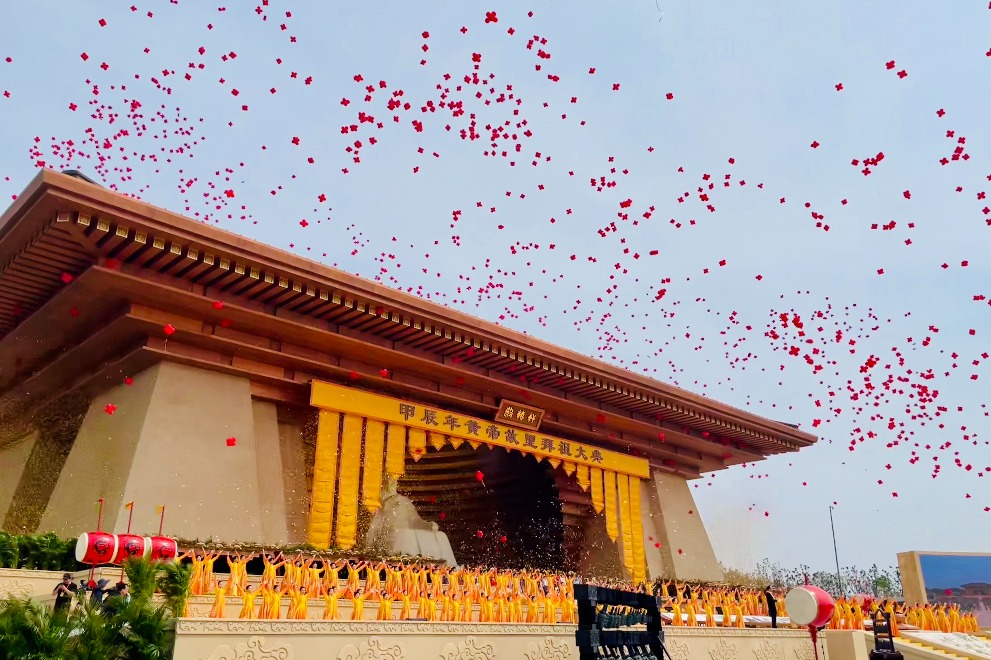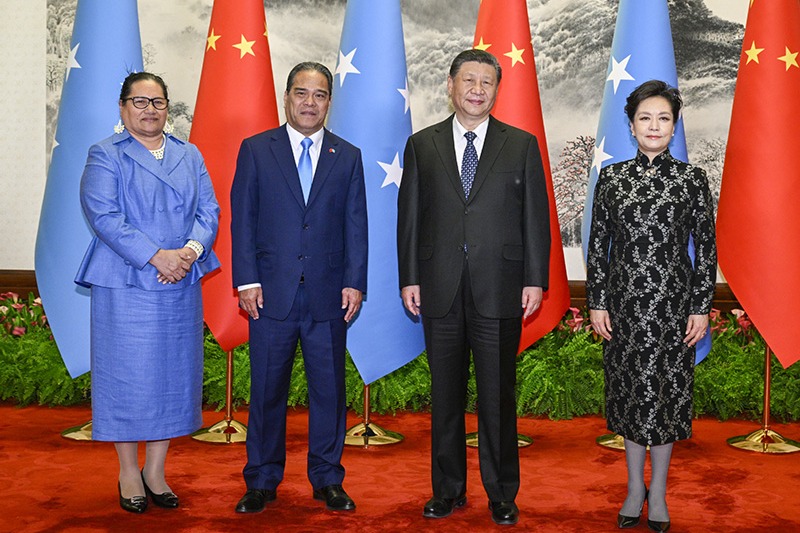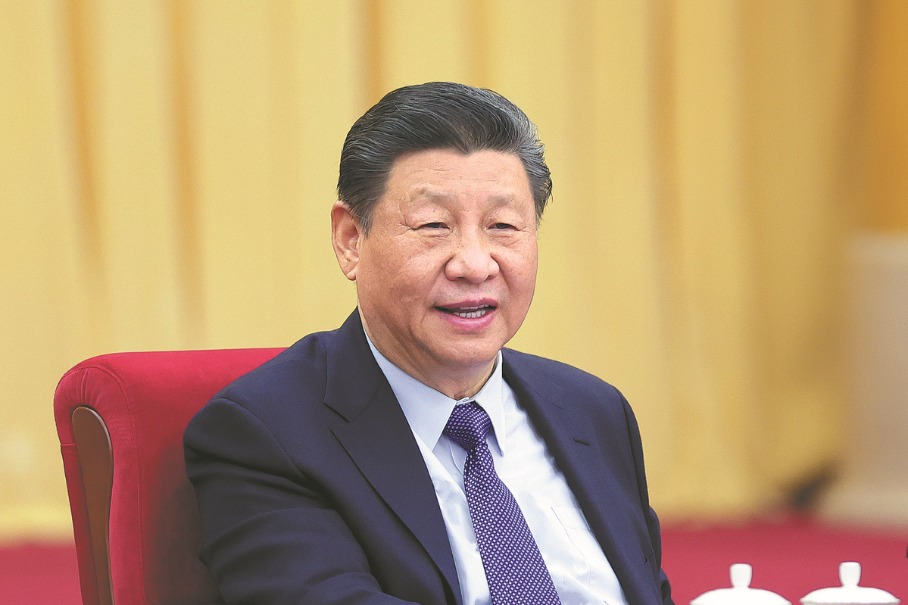Striking a balance
In the first of a three-part series, Zhang Tianyuan examines the impact of Hong Kong’s new two-tier salary tax structure on professionals, as the city goes all-out to attract top talent while retaining a low-tax economy to stay competitive as a world financial center.


Would higher taxes hamper Hong Kong's all-out bid to attract and retain top-notch talent?
The issue was debated after the special administrative region introduced a new two-tier tax system under which employees earning up to HK$5 million ($640,000) annually will be taxed at a 15 percent rate, and those with a yearly income above that amount will have to pay a 16 percent tax on income over HK$5 million.
The new tax regime, which came into force this month, was announced by Financial Secretary Paul Chan Mo-po in his 2024-25 Budget speech on Feb 28. It has raised concerns about the potential impact on Hong Kong's efforts to attract top talent, particularly senior management in the innovation and technology sector, to which Hong Kong attaches great importance as the city strives to foster a new economic growth engine.
Some 12,000 individuals — about 0.6 percent of the total number of taxpayers in Hong Kong — are affected by the new taxes. But industry insiders are upbeat about Hong Kong's ability to retain its appeal to elites, saying the new tax regime will not diminish the allure of the city's initiatives to entice professionals, given Hong Kong's competitive edge in maintaining a low and simple tax system compared to other jurisdictions.
"Only top earners, mostly in the financial and technology sectors, are affected," says Karina Wong, deputy president of CPA Australia's Greater China Division and deputy chairperson of CPA Australia's Taxation Committee for Greater China. She said she believes the impact would be "manageable". "On average, each affected individual has to pay an additional HK$75,000 per year in taxes," she says, adding she is confident the move will not deter elites from coming to the SAR.
"Professionals come to Hong Kong for better career opportunities, business prospects, and remuneration, which outweigh the potential tax implications," explains Ada Ma, a council member and chair of the newsletter committee at the Taxation Institute of Hong Kong. She points out that, for individuals earning more than HK$5 million a year, the new tax "is not considered significant" and will not deter professionals planning to come and work in Hong Kong.
A recent survey by global auditing and tax services group KPMG showed that about 60 percent of executives with existing employers expect salary increases of 3 to 15 percent this year. The number of people affected by the two-tiered standard rate of taxation is limited, says David Siew, a partner at KPMG China.
He notes that the HKSAR government has adhered to the "principle of affordability, and those who can afford it should pay more". In recent years, adjustments to Hong Kong's salaries tax system have primarily focused on addressing livelihood issues, such as extending interest-rate deductions on loans, as well as domestic rents, to support those living with children.
The median monthly pay for professionals coming to Hong Kong under the post-pandemic Top Talent Pass Scheme is HK$50,000, according to the latest government survey. The poll, which targeted high-skilled talent who had been in Hong Kong for more than six months as of October last year, also found that nearly a quarter of them were drawing an average monthly income of HK$100,000 or above. About 10 percent among the group earned HK$200,000 or more monthly. Yet, even their combined annual incomes are still well below the HK$5 million mark.
Compared to other major financial centers and developed economies, Hong Kong's simple tax system is still considered one of the most attractive in the world. "Moreover, it's worth highlighting that Hong Kong does not have a goods and services tax or a capital gains tax. This reaffirms its position as a global low-tax economy," says the Hong Kong General Chamber of Commerce.
Singapore, often seen as Hong Kong's main rival in attracting businesses and talent, imposes a higher personal income tax rate of 24 percent. While the rate is well above Hong Kong's standard rate, it's still much lower than those of other leading economies. In the United Kingdom, the United States and Canada, personal income tax rates for top earners range from 37 percent to 53.5 percent. Japan has an even more imposing top tax rate of 55.9 percent.
Hong Kong's new two-tier tax structure — the first to be imposed in two decades — came as the SAR government's fiscal deficit ballooned to HK$101.6 billion in the last fiscal year. The reform is expected to generate over HK$900 million for the government in annual revenue. The budget deficit has been largely attributed to the economic cycle and decreased revenue from land sales and stamp duties, rather than recurring expenditures, explains John Timpany, head of tax at KPMG Hong Kong. With the government's operating expenditure expected to balance out with revenue, along with Hong Kong's robust fiscal reserves of HK$733.2 billion, he sees no drastic changes in the tax system.
Hong Kong workers benefit from a unique dual tax system that allows them to choose between a progressive, and a standard tax rate, whichever results in a lower tax liability. Under the progressive tax-rate system, an employee's income is categorized, with each category subject to a different tax rate. The rates go up as income rises, with higher earners paying a larger percentage in taxes. The rates range from 2 percent to a maximum of 17 percent after deductions and allowances. Alternatively, employees can opt for the standard tax rate, which is a fixed percentage applied to their total taxable income regardless of the amount earned. The previous rate for this method of taxation was 15 percent on net income after deductions.
The ability to choose between the progressive and standard tax rates is an advantage of Hong Kong's tax system, setting it apart from those of some other economies, where only a single method is used. Such flexibility, coupled with its low and simple tax system, is seen as one of the factors contributing to the SAR's reputation as an attractive place to work and do business.
Contact the writer at tianyuanzhang@chinadailyhk.com




































